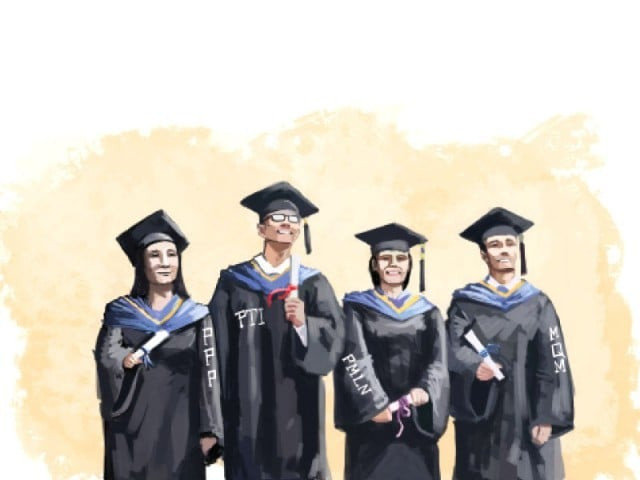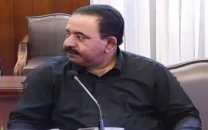University law: Teachers want review of clauses restricting autonomy
Neutrality, merit will come under question in appointments, says Dr Chitrali.

The teachers said that they welcome the implementation of the 18th constitutional amendment, which transferred powers from the governor to the chief minister, but they hold serious reservations on the subsequent clauses which would render the universities statutory bodies ineffectual. PHOTO: FILE.
Teachers of public sector universities from across the province have sorted out their differences and demanded the elimination of some clauses of the controversial Sindh Universities law 2013.
The teachers have formed a six-member committee and given the authorities a 15-day deadline to review the act they believe would undermine the administrative and academic autonomy of the varsities.
Elected representatives of teachers’ associations of around eight public sector universities met on Thursday at the NED University of Engineering and Technology and came up with their demand during a meeting of All Pakistan Universities Academic Staff Association (FAPUASA) - the umbrella body of the teachers’ associations.
The teachers said that they welcome the implementation of the 18th constitutional amendment, which transferred powers from the governor to the chief minister, but they hold serious reservations on the subsequent clauses which would render the universities statutory bodies ineffectual.
“In essence, we are all members of a single unit - the public sector universities - and by virtue of this fact, our reservations and agreements on this new legislation are over the same issues,” said FAPUASA Sindh president Dr Syed Asad Raza Abidi, while discarding the notion of polarisation among teachers at the province’s urban and rural universities.
Dr Abidi was addressing a press conference along with FAPUASA central vice-president Dr Waheed Chaudhry, FAPUASA central secretary-general Dr Jamil Ahmad Chitrali and representatives of the teachers’ associations.
On the clause which makes the admission policy of certain universities the subject of provincial government, Dr Abidi categorically stated that all decisions regarding the admissions is the purview of its academic council.
The real concern of teachers, said Dr Abidi, was the “licence to interfere” for the government in appointments made through universities’ selection boards and approved by their statutory bodies. “The performance of universities will be adversely affected if administrative officials are hired from outside to oversee the affairs,” he said.
“Governments change from time to time and so do their representatives. How can we trust a chief minister to ensure merit and neutrality in administrative appointments at higher seats of learning?” asked Dr Chitrali. “The new law surrenders initiation process for appointments to the will of provincial higher education department’s section officer - working under the authority of chief minister.”
“We demand appointments of in-service vice-chancellors and pro-vice chancellors, preferably from amongst the top three professors of the institution, as per the criteria set by the Higher Education Commission and for a maximum of two terms,” he said.
In this context, the teachers termed the relieving of two vice-chancellors of public universities, Dr Masood Hameed Khan of Dow University of Health Sciences and Dr Abdul Qadeer Rajput of Mehran University of Engineering and Technology, a positive step.
The teachers said that the government should have taken the major stakeholders in confidence. Dr Chitrali shared his experience about Khyber-Pakhtunkhwa province, where provincial government had taken all relevant stakeholders on board to formulate laws on higher education.
“The way Sindh government asks the federal government for autonomy and devolution of powers following the 18th constitutional amendment, it should apply the same rule to its own institutions,” remarked Dr Chitrali. “Its current policies seem to be anti-devolution, especially in granting academic, financial and administrative freedom to the universities.”
Meanwhile, Islami Jamiat-e-Talaba has said any “authoritarian step” for changing the Karachi University’s admission policy through the imposition of a quota system an “anti-education” step.
“The act is a public facade of providing equal opportunities to students in the province. In reality, it is an assault on merit by which the government will reduce higher education opportunities,” said IJT KU Nazim Muhamamd Bilal. Instead of politicisation of education, he said, the government should set up new universities in each district and improve standards of the existing ones.
Published in The Express Tribune, August 30th, 2013.



















COMMENTS
Comments are moderated and generally will be posted if they are on-topic and not abusive.
For more information, please see our Comments FAQ